Key Highlights
- A diabetes diagnosis can bring a lot of hard feelings like fear, sadness, and confusion for people who have type 1 or type 2 diabetes.
- The way someone finds out can be different. Type 1 may feel like it comes out of nowhere, while type 2 might not be a surprise if someone in their family had it before.
- To do well with diabetes management in primary care, people have to get past that first shock. They need to learn, choose goals, and keep going even if things go wrong sometimes.
- Mental health is a big part of diabetes care. Handling stress and anxiety is important for better health outcomes.
- A strong social support system from family, friends, and support groups really helps people deal with the tough parts of living with diabetes.
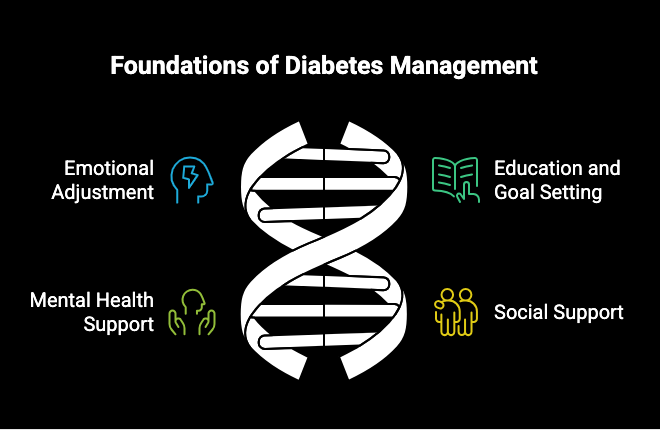
Introduction
Getting told you have diabetes mellitus can feel like your life has changed all at once. This is a chronic condition, so you need to pay attention to it every day and learn new things to handle it well. At first, you might feel shocked or worried but you can get past this feeling and learn to take care of yourself. Going from the first moment of finding out to feeling sure about what you do is a different path for each person but in the end the main goal is the same for all: you want to look after yourself and have a good quality of life. Are you ready to find out how to do it?
Emotional Impact of a Diabetes Diagnosis
When you find out you have a chronic disease like diabetes, especially as young people, you might feel a mix of strong emotions. Many people feel scared, sad, and confused. You can also feel worried. These feelings happen because a diagnosis like this can change the way you live every day. A chronic disease can also change your plans for the future. This is a normal way to feel when you get such news.
Understanding these feelings is the first thing you need to do before you can handle them. Getting the diagnosis may feel hard. It can have a big effect on your mind and your quality of life. It is important to see and accept these feelings. If you try to push them away, it does not help. By facing your emotions, you start to build a good way to cope. This will help you feel more sure and ready to move ahead.
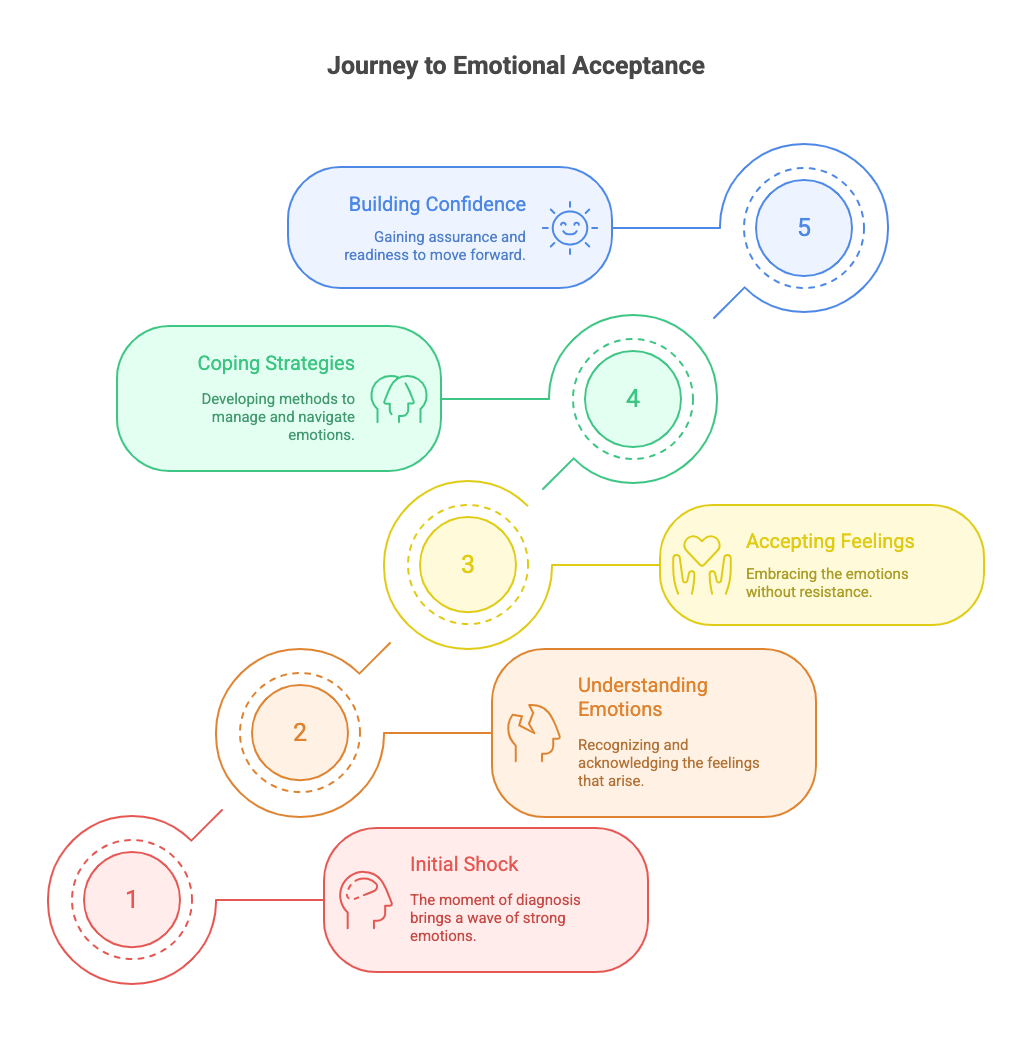
Navigating Life with Diabetes: Understanding, Managing, and Thriving
In this guide, Dr. Kulmeet Kundlas MD talks about what it is like to live with diabetes mellitus. He covers how people feel when they first find out they have it and tells about what they need to do each day to take care of themselves. He also shares tips on how to change your habits for the long run. Dr. Kundlas uses what he knows from being a doctor and what he has learned from people dealing with diabetes mellitus.
Initial Diagnosis: Getting the News
Imagine you go to the doctor for a usual checkup. Later, the doctor tells you that your blood sugar is high. Your hemoglobin A1C is also over 6.5. After hearing this, you might feel like your world is turned upside down. A result like this can come as a shock. Many people feel worried right away. They may think life will now be full of strict rules and medicine. It is normal to feel shocked or even get angry at first. Everyone has these feelings when they find out about a long-term health problem.
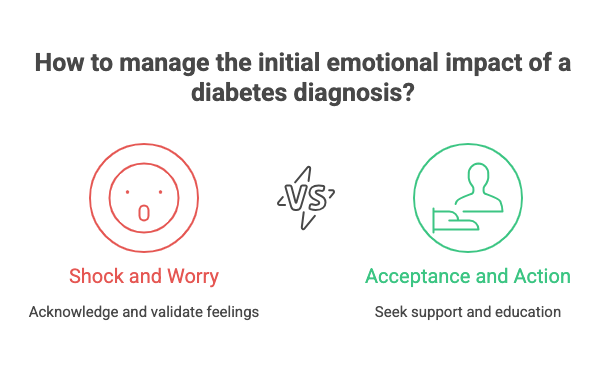
Emotional Journey After Diagnosis
After you get the diagnosis, you may feel many types of emotions. The stages that come are a lot like going through grief. At first, you might not believe it. You can feel angry. After some time, there is a chance you come to accept it. Knowing about these stages can help. It makes it easier for the patient to change the mindset and get ready for dealing with diabetes in the long run.
Understanding Diabetes: Basic Facts
Diabetes mellitus is a health problem in the United States where the body does not have enough insulin or it cannot make insulin well. This means that the blood sugar goes up. Dr. Kundlas says eating lots of carbohydrates, especially the simple kind, can cause the body to build resistance to insulin. This is a main reason for type 2 diabetes. When insulin does not work right, the blood sugar levels stay high.
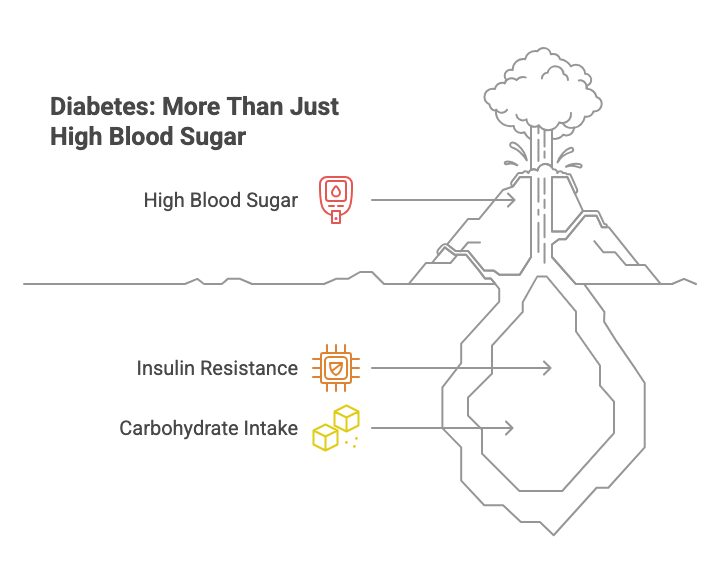
Diabetes Complications: Short & Long Term
Diabetes can cause problems that happen fast or take longer to show up. Fast problems are tied to high blood sugar. Long-term issues usually hurt your heart and blood flow, and your eyes may not see as well. It can also lead to kidney trouble or nerve pain, along with other health concerns. It is important to keep blood sugar levels in control to avoid these problems.
Common Questions About Living with Diabetes
Can diabetes be reversed? For most people, this is hard. A few may be able to turn things around if they change how they live. Many people with Type 2 diabetes do not have to take insulin. You can help control the condition through lifestyle changes, and a few methods studied in randomized clinical trials show the right medicine can help.
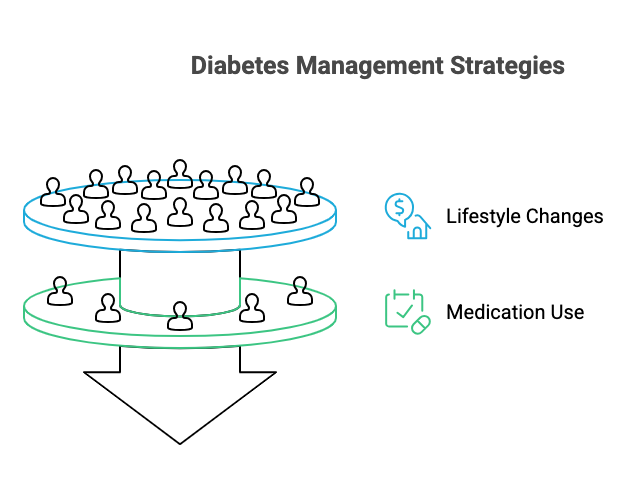
Treatment Options and Medications
There are several medicines that help people manage diabetes. These work in different ways to keep blood sugar under control. Some of them stop the body from taking in too many carbohydrates. Others help the body make more insulin or use insulin better. Some even help the body get rid of extra sugar by passing it out in urine.
Managing Blood Sugar Levels
Checking blood sugar is very important. Technologies like Continuous Glucose Meters (CGM) can give you instant updates. This helps people see what is going on with their blood sugar right away. They can then change what they do in the moment to keep their glucose at a good level.
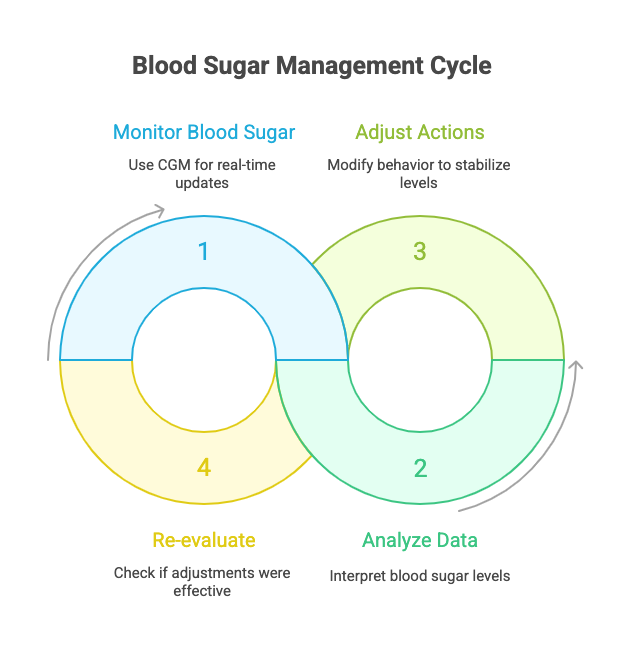
Diet and Nutrition Guidelines
Diet is very important in diabetes management. The plate method is an easy way to help with this. You fill half the plate with vegetables. A quarter of the plate should have proteins. The last quarter should have complex carbohydrates. This is a simple way to eat and have good habits without taking out all carbohydrates.
Long-term Management and Care
Going to the doctor for check-ups, watching your blood pressure and cholesterol, and getting care before there are any problems are important for people with diabetes. You should also talk often with your doctor and team. This helps you catch issues early. It’s good to take steps that can keep you from having problems later.
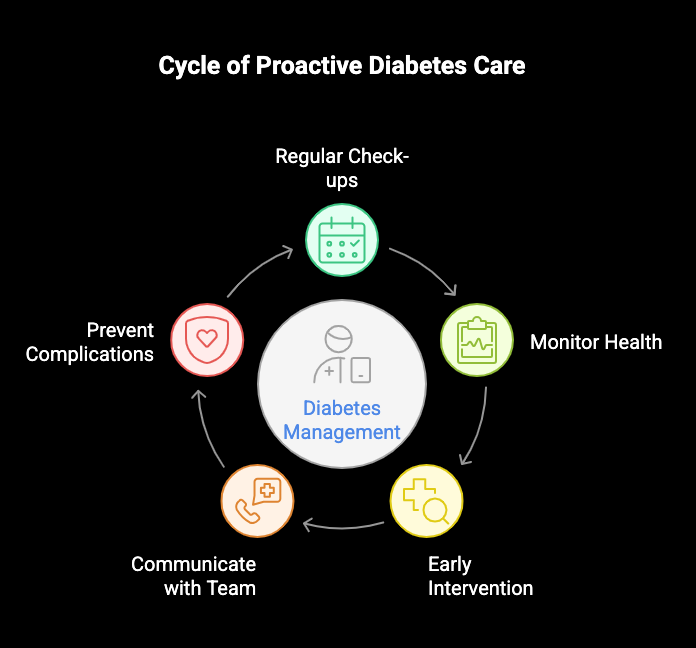
Living Well with Diabetes: Final Advice
When people get told they have diabetes, they might feel scared at first. It can feel like there are a lot of limits on what you can do, including enjoying a birthday cake. But if you get the right help and make some changes to the way you live, you can still have a good, full life. Dr. Kundlas says that living many healthy years with diabetes is possible. You just need to keep learning about your health and take steps to look after yourself.
Stay with us for the next podcast. In it, Dr. Kundlas will talk more about key lifestyle changes you need to manage diabetes. If you liked this guide, please like it and subscribe to our channel, Kundlas MD. There will be more on how to manage diabetes and ways to feel good and stay healthy. Thank you for being with us on this path.
Personal beliefs and expectations play a crucial role in diabetes self-management outcomes, which relate to the health belief model. If individuals believe they can successfully manage their condition and expect positive results from lifestyle changes, they are more likely to adopt and stick with healthy habits, monitor their blood sugar, and follow medical advice. On the other hand, negative beliefs or low expectations may reduce motivation and lead to poor self-management. Stay tuned as our upcoming episodes will further explore the psychological aspects of living well with diabetes.
Frequently Asked Questions
What do experts recommend to someone newly diagnosed with diabetes?
Experts say it is good to spend time on patient education. This helps you know more about your health. You can work with your health care team. They will talk with you about blood glucose monitoring checks. They can show you how to handle and keep track of your blood glucose. Groups like Diabetes Canada have tools and advice. These make people feel like they can do well instead of feel lost when they hear they have type 2 diabetes.
How can I stay encouraged when self-management feels overwhelming?
When you feel like diabetes management is too much, reach out to your support networks. They can give you encouragement when you need it. Try to tie what you do to bigger goals in your life. A chronic condition takes time to handle, so remember that this is a marathon, not a short race. Even taking small steps, like doing some physical activity, can help you get closer to success.
What are some things people wish they’d known earlier about living with diabetes?
Many diabetic patients often say they wish they knew sooner that diabetes management success does not have to take away their quality of life. They find out that things do not always go as planned, and that having a perfect blood sugar level is not the only way to feel like they are doing well. This is something they learn again and again during patient educ couns sessions.
References
[1] Diabetes Canada. (2023). Lessons learned from managing my diabetes. https://www.diabetes.ca/media-room/stories/lessons-learned-from-managing-my-diabetes
[2] Everett, J. (1999). Type 1 diabetes Towards self-management of newly diagnosed type 1 diabetes. Journal of Diabetes Nursing. https://www.diabetesonthenet.com/journal-of-diabetes-nursing/type-1-diabetes-towards-self-management-of-newly-diagnosed-type-1-diabetes/
[3] Pugh, A., Ritholz, M. D., & Beverly, E. A. (2024). Similarities and Differences in Diabetes Diagnosis Stories Among Adults With Type 1 or Type 2 Diabetes in Appalachian Ohio. Clinical Diabetes, 42(3), 408–418. https://www.ncbi.nlm.nih.gov/pmc/articles/PMC11247034/
What’s the hardest part about managing type 2 diabetes?
The hardest part about managing type 2 diabetes often involves lifestyle changes, such as dietary adjustments and consistent exercise. These changes can be overwhelming initially and require continuous motivation and education to maintain healthy habits over time, making it a challenging journey for many individuals facing this condition.
Diabetes insights: From shock to self management success
https://www.cdc.gov/diabetes/php/data-research/
https://www.cdc.gov/diabetes/managing/mental-health.html
https://www.arc.gov/county-economic-status-and-distressed-areas-by-state-fy-2022/


